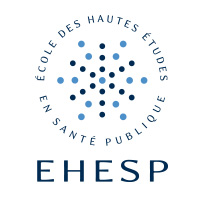Attitudes of healthcare professionals toward the COVID-19 vaccination campaign in France
Résumé
During the Covid outbreak, very few health professionals took an extreme position of vaccine refusal. Some differences were observed in terms of theoretical acceptance of the 2018 influenza vaccination campaign and COVID-19 vaccination in winter 2020–2021.
The features most frequently associated with vaccine acceptance were: benefit-risk perception favoring vaccination (OR 13.5 [10.1–18.0]), absence of fear of a serious adverse effect (OR 8.7 [6.8–11.2]), employer’s incentive perceived as motivating (OR 7.3 [4.1–13.2]), notion that vaccination is a collective response to the crisis (OR 5.3 [3.4–8.2]), favorable family opinion (OR 4.6 [3.6–6.0]) and fear of a severe form of COVID-19 (OR 1.8 [1.4–2.4]).
Vaccine hesitancy has been characterized as a continuum between an individual who accepts all vaccinations and others who refuse all vaccinations. Among health professionals in France, there is a selection process at the time of hiring due to the requirement of vaccination against hepatitis B. As a result, very few health professionals who take an extreme position of vaccine refusal. Attitudes toward COVID-19 vaccination were generally more extreme with more caregivers accepting vaccination in all scenarios (43.9% vs 9.9% during the influenza vaccination campaign) but also with more caregivers refusing vaccination in all scenarios (17.2% vs 9.9% during the influenza vaccination campaign).
In two preference studies presenting series of vaccination scenarios to French healthcare professionals, differences were observed in terms of theoretical acceptance of the 2018 influenza vaccination campaign and COVID-19 vaccination in winter 2020–2021 [1], [2]. Attitudes toward COVID-19 vaccination were generally more extreme, with more caregivers accepting vaccination in all scenarios (43.9% vs 9.9% during the influenza vaccination campaign) but also with more caregivers refusing vaccination in all scenarios (17.2% vs 9.9% during the influenza vaccination campaign). As is often the case, overall hypothetical acceptance was greater among doctors than among paramedical professionals. To summarize, we observed that about one third of healthcare professionals readily accept vaccination, while about half of them accept vaccination in certain scenarios, depending on the characteristics of vaccination presented.
The factors impelling healthcare professionals to accept influenza vaccination were the potential for epidemic and disease control, and the protection of patients and families [3]. In addition, higher vaccine effectiveness and longer duration of protection, along with more extensive coverage among colleagues, had a positive impact. On the other hand, messages from hospital management had no impact, while the offer of badges “I’m vaccinated” was seen as dissuasive.
As regards vaccination against COVID-19, these factors seem to have been similar, albeit with a negative impact of the uncertainty about vaccine effectiveness and duration of protection (unknown at the beginning of the campaign). The absence of indirect protection and the argument of a favorable benefit-risk balance of vaccination if a severe side effect was known had negative impacts, as well [2].
In a study on Covid-19 vaccine intentions among healthcare professionals in France at the beginning of the campaign, the prevalence of intentions was dynamic and increased in all categories of health professionals, between December 2020 and February 2021. In a similar survey in late summer 2021, the percentage of healthcare workers declaring vaccination before summer (before announcement of obligation) was similar to that of persons with intention to accept a third dose, should it be recommended (unpublished data). This suggests that by then, vaccine acceptance had reached a plateau.
As of now, five components or psychological antecedents of vaccine hesitancy and acceptance have been cited: confidence in vaccines and the system that delivers them, complacency (e.g., not perceiving diseases as high risk), constraints (perception of structural barriers), calculation (engagement in extensive information searching and weighing of risks higher than benefits), collective responsibility (determination to protect others) and convenience (perception of practical barriers) [4]. Additional factors such as social conformity and confidence in the wider system (leading to reactance against vaccine promotion) may likewise be brought into play [5].
Among the factors associated with vaccination intention among healthcare professionals at the beginning of the vaccination campaign, we found: benefit-risk perception in favor of vaccination (OR 13.5 [10.1–18.0]), absence of fear of a serious adverse effect (OR 8.7 [6.8–11.2]), employer’s incentive perceived as motivating (OR 7.3 [4.1–13.2]), notion that vaccination is a collective response to the crisis (OR 5.3 [3.4–8.2]), favorable family opinion (OR 4.6 [3.6–6.0]) and fear of a severe form of COVID-19 (OR 1.8 [1.4–2.4]). After the announcement in summer 2021 of mandatory vaccination, the factors most strongly associated with healthcare professionals’ having received the Covid-19 vaccination were the notion that vaccination is a collective response to the crisis and a (very) favorable opinion on Covid-19 vaccination among family and friends. The motivating factor most strongly associated with intention for a booster dose was perceived employer incentive. (CAPP-VaCov study, unpublished data). These data illustrate the major role of interpersonal factors in vaccine acceptance.

